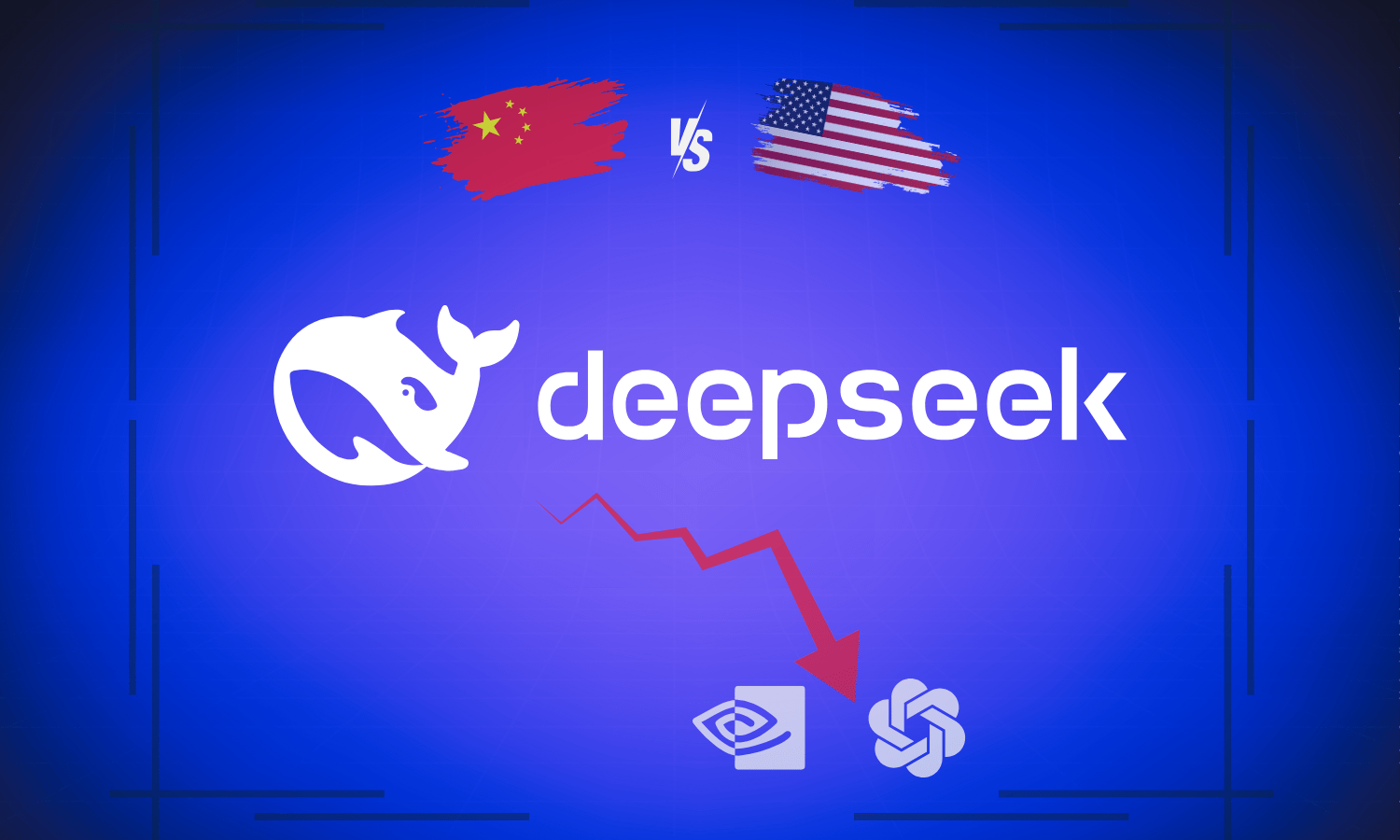How to enjoy AI's benefits without sacrificing your privacy
Everything about AI, privacy and mass surveillance

Why privacy matters in the age of AI. And how you can take advantage of AI without compromising your data.
With the increasing power of AI and the rapid pace at which humanity is moving towards general artificial intelligence, the threat to privacy is growing exponentially. Learn why data protection in the digital age of AI is critical and how you can still enjoy the benefits of AI without exposing your data to misuse and mass surveillance.
Introduction to the age of AI
Artificial Intelligence (AI) has made remarkable strides in recent years, bringing daily innovations that simplify our lives and significantly boost our productivity. From advanced image recognition to intelligent assistants that organize our daily activities, the applications of AI are virtually limitless. AI can solve complex problems, provide precise medical diagnoses, and even support creative processes like composing music or writing stories.
Another fascinating application of AI is its ability to engage in personal conversations and assist us with daily tasks. Interacting with AI systems can provide emotional support, help explain complex documents, and summarize information concisely. Anyone who hasn’t been completely cut off from the outside world in the last two years has likely heard of ChatGPT or at least Google’s Gemini or Microsoft’s CoPilot. These AI-based assistants deliver valuable information quickly and assist with a variety of tasks with accuracy and speed far surpassing human assistants.
This versatility makes AI assistants an indispensable tool in nearly all areas of life. However, with all these advantages come significant risks, particularly to our privacy. And this affects you as well.
The Invisible Dangers of Helpful AI Assistants
As the capabilities of AI increase, so does the threat to our privacy. Every time we interact with AI assistants like ChatGPT, we reveal valuable data. This data is not only valuable for improving AI models but also a coveted asset and a goldmine for advertisers and large tech companies like Microsoft with their CoPilot. Our most intimate information—from health data to financial details and personal weaknesses and secrets shared with AI assistants—is collected and often used without our knowledge.
This involves not just simple data points but often highly sensitive and confidential information. We might share sensitive documents with AI assistants that contain personal data like addresses, names, and phone numbers. Even the most harmless interactions can reveal valuable information or relationships that are gold for big tech giants and can cause significant harm if they fall into the wrong hands. Many users are unaware of the extent of this surveillance and do not realize how detailed and in-depth the analysis of their data can be.
Through constant collection and evaluation, a comprehensive profile of each user is created, revealing our preferences, habits, and even our deepest secrets. This knowledge makes us vulnerable and opens up numerous possibilities for misuse, from targeted advertising to manipulative techniques that influence our behavior. The consequences of this development are far-reaching, affecting not only our privacy but also our freedom and security in an increasingly digital world.
Automated Surveillance and Data Misuse
In today’s digital world, it is easier than ever to search data and recognize patterns. Automated systems can draw conclusions and create user profiles in seconds, which are more detailed than we can imagine. Furthermore, there is a risk that employees of the companies offering AI assistants can access this sensitive data and read conversations if there is suspicion that the AI assistant is not functioning properly or is being misused. This loss of control and transparency is alarming. Of course, if you want to look on the bright side, there is another aspect to report: Some companies occasionally inform their customers that employees might read conversations or use data for training purposes. However, this is only a weak consolation, as most users do not have the time or knowledge to understand the impact of this practice and do not think much about it.
The Lucrative Trade with Our Data
The data we generate daily is a real goldmine for tech companies. By offering seemingly free services, they attract us only to use our information for advertising, model training, and other commercial purposes. This practice is particularly problematic when we consider how often we integrate AI assistants into our daily lives. We interact with these assistants, have personal conversations, upload documents for better understanding or summarization, and even share images for analysis or improvement.
This valuable data is not only priceless for improving services and models but also for monetization by third parties. Advertisers and other companies pay large sums for access to our personal information, as it allows them to develop more targeted and effective marketing strategies. Worse still, this valuable data is often sold or forwarded to third parties without our knowledge. Users are mostly kept in the dark about the true extent of data collection and the resulting trade.
One example of the far-reaching consequences of this practice is the use of our data for targeted advertising. When an AI assistant has detailed information about our preferences and habits, advertisers can display tailored ads precisely matching our interests. This may seem harmless at first glance, but it raises serious questions about manipulation and privacy.
Furthermore, this data is not always stored or transmitted securely. There are numerous cases of data leaks and security breaches where personal data has fallen into the wrong hands. The consequences of such incidents can be devastating—from identity theft and financial losses to irreparable damage to personal reputation.
We consumers are left in the dark and have to rely on promises that are rarely kept. Many companies promise transparency and data protection, but the reality is often different.
Therefore, it is essential that we consciously choose privacy-friendly alternatives and actively inform ourselves about the practices of the companies we entrust our data to. Only then can we enjoy the benefits of AI without compromising our privacy and security.
How you can take advantage of generative AI and protect your data
It’s time to switch to a better alternative that continues to provide maximum efficiency and support in daily life without exploiting your personal data. With CamoCopy, you can trust an AI assistant that respects and protects your privacy. With CamoCopy, your data is encrypted and belongs to you, not tech companies or governments. Delete your data whenever you want and enjoy the benefits of generative AI without the risks mentioned above. CamoCopy offers no empty promises, but real data protection and security. Explore the website and join the CamoCopy privacy-conscious community today.



